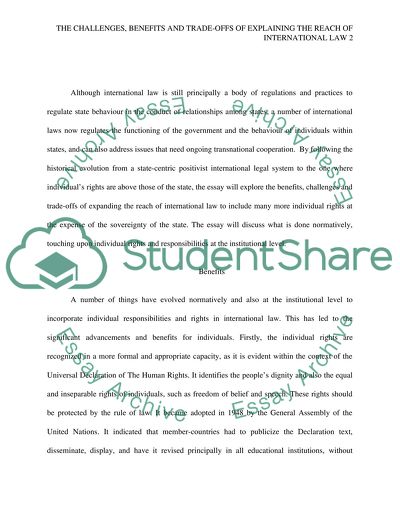Cite this document
(“The challenges, benefits and trade-offs of expanding the reach of Essay”, n.d.)
The challenges, benefits and trade-offs of expanding the reach of Essay. Retrieved from https://studentshare.org/law/1454431-the-challenges-benefits-and-trade-offs-of
The challenges, benefits and trade-offs of expanding the reach of Essay. Retrieved from https://studentshare.org/law/1454431-the-challenges-benefits-and-trade-offs-of
(The Challenges, Benefits and Trade-Offs of Expanding the Reach of Essay)
The Challenges, Benefits and Trade-Offs of Expanding the Reach of Essay. https://studentshare.org/law/1454431-the-challenges-benefits-and-trade-offs-of.
The Challenges, Benefits and Trade-Offs of Expanding the Reach of Essay. https://studentshare.org/law/1454431-the-challenges-benefits-and-trade-offs-of.
“The Challenges, Benefits and Trade-Offs of Expanding the Reach of Essay”, n.d. https://studentshare.org/law/1454431-the-challenges-benefits-and-trade-offs-of.


